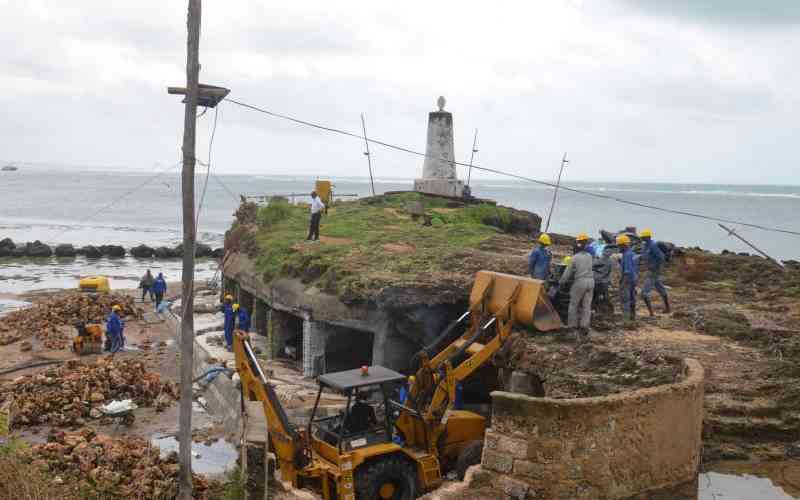A three-day Inter-Governmental Authority for Development (Igad) conference held in Nairobi this week resolved to have party States co-operate in the management of water resources to avoid regional conflicts.
In addition, the members agreed to share suitable technologies to enhance community livelihoods.
This would be coupled with community participation to promote ownership and sustainability of programmes, as well as, strengthening data collection and sharing at both regional and national level.
Noting that Igad has produced a draft regional water resources policy to be submitted to Water ministers for endorsement, the authority’s Executive Secretary Mahboub Maalim said competition over water is a likely precursor for conflict in the continent.
Under the theme ‘Water For Regional Cooperation’, Mr Maalim said Egypt has, for instance, managed to dominate the Nile Basin by exploiting the water and enjoying the rights accorded to her in the Nile Water Agreement brokered by the British government in 1929.
“This agreement gave Egypt exclusive rights to control use of the water and veto powers over upstream water projects,” he said.
Jomo Kenyatta University of Agriculture and Technology’s David Nyariki cited the delicate conflict over equitable allocation of water resources in the Nile riparian states.
resource conflict
Ironically, majority of the Igad member states are involved in the Nile water conflict.
Mr Nyariki said natural resource governance on the continent has been contestable and linked to global security concerns.
He cited the dispute between Cameroon and Nigeria over sovereignty of the Bakassi peninsula, a strategic oil-rich region, and squabbles between DRC, Uganda and Rwanda among others as some of the conflicts that emanate from resources.
Nyariki argued that the challenges Igad faces in advancing regional water co-operation may partly be fueled by ‘suspicion’ among member States, that has led to creation of ‘power blocks’ and plays.
“The resultant effect of this mistrust is that the Igad secretariat is dissuaded from developing autonomous resolutions to cater for all member States’ interests,” he said.
Overlapping structures
Further, he noted that the multiple and often overlapping regional structures like the Nile Basin Initiative and the East Africa Lake Victoria Basin Commission contribute to competition rather than collaboration over resources and political influence in the sub-region.
Stay informed. Subscribe to our newsletter
University of Nairobi lecturer and also a member of the UN Secretary General’s Advisory Board on Water and Sanitation Eric Odada stressed on the need to encourage public-private partnership, as well as, community involvement and investment in water infrastructure development.
Prof Odada said scientists and engineers in Africa should also be encouraged to develop innovative technologies based o n local knowledge that will contribute to higher water use efficiencies in various sectors.
The state of water resource management within the Igad region is seen as particularly precarious given that population growth and economic development have overwhelmed traditional water management practices.
This is further compounded by water scarcity among the region’s population, pollution and floods, leaving the poor vulnerable to climate variability, as witnessed by effects of weather related extremes each year.
 The Standard Group Plc is a
multi-media organization with investments in media platforms spanning newspaper
print operations, television, radio broadcasting, digital and online services. The
Standard Group is recognized as a leading multi-media house in Kenya with a key
influence in matters of national and international interest.
The Standard Group Plc is a
multi-media organization with investments in media platforms spanning newspaper
print operations, television, radio broadcasting, digital and online services. The
Standard Group is recognized as a leading multi-media house in Kenya with a key
influence in matters of national and international interest.
 The Standard Group Plc is a
multi-media organization with investments in media platforms spanning newspaper
print operations, television, radio broadcasting, digital and online services. The
Standard Group is recognized as a leading multi-media house in Kenya with a key
influence in matters of national and international interest.
The Standard Group Plc is a
multi-media organization with investments in media platforms spanning newspaper
print operations, television, radio broadcasting, digital and online services. The
Standard Group is recognized as a leading multi-media house in Kenya with a key
influence in matters of national and international interest.









